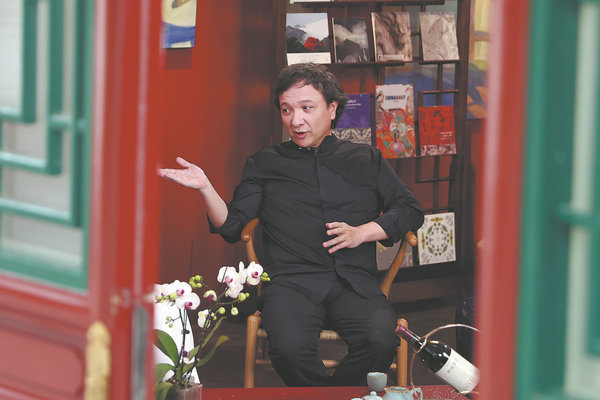A celebration of civilizations
French writer and curator in Beijing joins a salon with a Chinese cellist trained in France to discuss how art, literature and music translate beyond the cliche of 'universal languages' to traverse intercultural intersections, Erik Nilsson reports.
By Erik Nilsson | China Daily | Updated: 2024-05-07 05:33

Points of contact
Chu says such universal languages as art, food and music offer entry points. Not many Chinese had heard French music when he moved to Europe decades ago, he says.
"When I was there, I was listening to the sonata of (Claude) Debussy, and I was shocked!" He then switched to Chinese to explain that he heard the folk music of northwestern China's Loess Plateau region, including the sanxian (a Chinese three-stringed lute), in Debussy's piece.
"One-hundred years ago, in French paintings, you could see a lot of influence coming from the East, from China, Japan … a lot of Asian cultural influences. It's the same with music."
Chu has visited countless cities in his homeland and around the world, yet insists: "I have never traveled in China. I'm traveling only in my music. So, I go there to do concerts. OK, I've been everywhere in my country but for organized concerts or … cultural events.
"I'm not really traveling because I get in contact with millions of my compatriots through music. And it's already a huge blessing for me. So, I don't need more."
He believes music not only goes beyond language but even extends to senses beyond the auditory, through its synesthetic power.
"Music is the only human language invented that can be used and be loved without any translation," Chu says.
"It's not just that music has sounds. Music has pictures — invisible pictures. And, also, music has flavors. I think the French have composed the most beautiful ancient music ever."
























